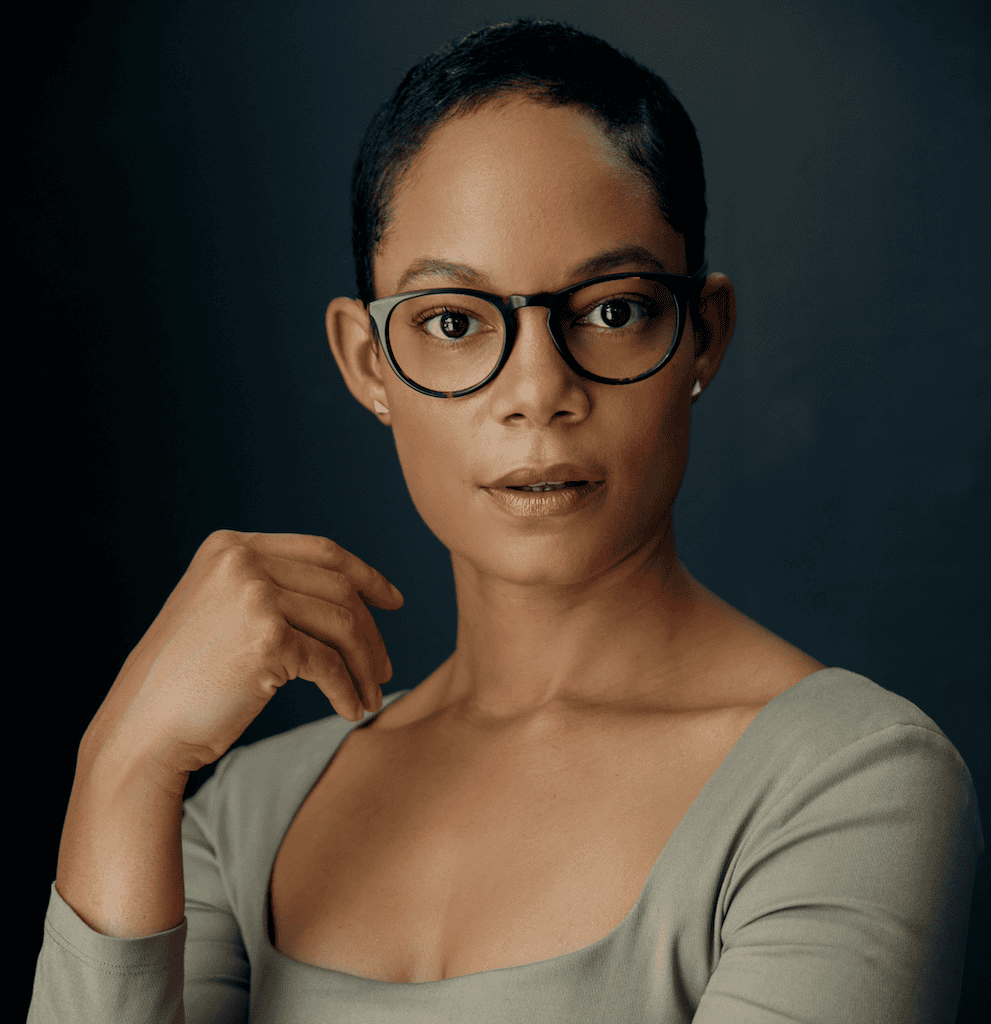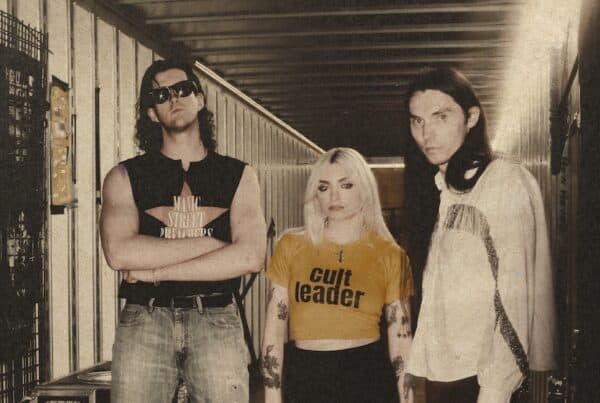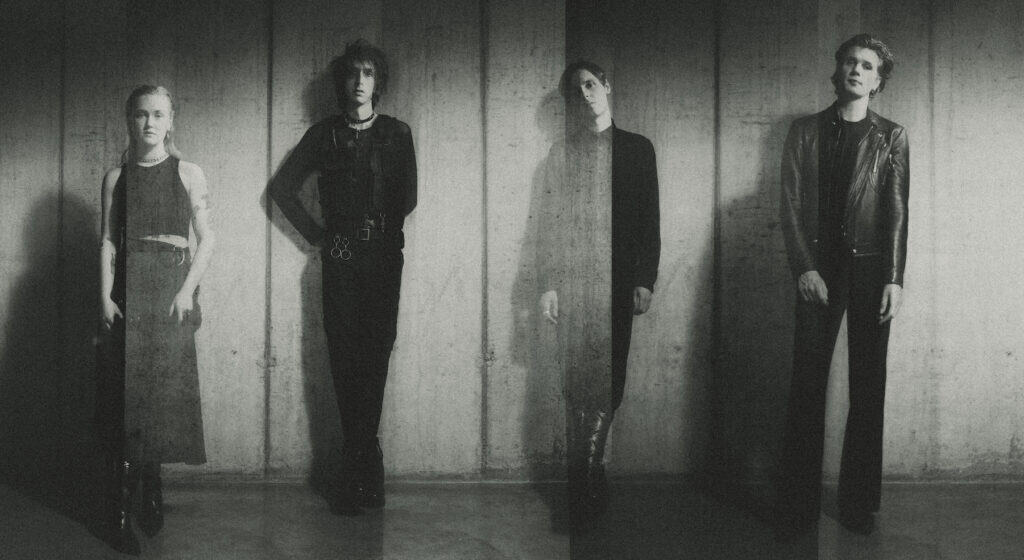Paulina Lule discusses their new show Emperor of Ocean Park, their upcoming social commentary zombie project and the importance of conservation.

Image: Dana Patrick
S] Nice to meet you, first of all, I want to learn a little more about you. You’re an actor and filmmaker, where did you first find this passion for creating characters, films and stories?
I think it’s always been a part of me. When I was a kid, my favourite thing to do was watch movies – and all different kinds of movies. I watched – I probably shouldn’t have watched most of the movies I watched, but you know, I was at latchkey kid, so I spent a lot of time by myself, after school. But I watched horror movies and Disney movies and sci-fi movies, I watched everything.
I’ve always loved film and when I was really young, I was that annoying kid who could recite the movies along with them, and when I was by myself it was fine, but when I was with family they could not stand it. There are several movies I could probably act out for you from beginning to end right here, including humming the score. That would be Pee-Wee’s Big Adventure, Red Sonja, The Lion King, The Matrix and Speed. So, it’s always been there.
I live in the mid-west of the United States, so access to Hollywood and the career path of Hollywood, it’s not here, or at least it wasn’t when I was growing up in the nineties. We didn’t have social media where you had to know somebody or know somebody who knew somebody who could steer you in the right direction. I didn’t realise I could pursue it until much later, I had an application to USC (University of Southern California) under my bed. The only reason I knew that was because I watched the TV show Dawson’s Creek, I was obsessed, and Dawson was always like “I gotta go to USC!” and so I was like “I gotta go to USC, cause that’s where you go to learn how to make movies!”
But I ended up not going to USC, I ended up studying computer engineering and Japanese, and then ended up in Tokyo after graduating college, and then I ended up in Hawaii. And then realised, wait a minute, I’m in control of my own future. So, I applied to film school, learned about directing and writing, and then from there I took an acting class and here we are.
S] You’ve appeared in many hit TV shows like The Good Place, Marvel’s Agents of S.H.I.E.L.D., ABC’s General Hospital, in the film Honey Boy, all these incredible projects and now you’re starring in Emperor of Ocean Park which streams on MGM+ on July 14th. Who is your character and how do they fit in with the story?
So, we have the judge, played by Forest Whitaker, and – he dies. The story takes place in multiple timelines, so we’ll see a lot of Forest in the show. His children, played by Tiffany Mack, Grantham Coleman and Henry Simmons, are left in various levels of grief because they had various different relationships with their father. Mariah and Talcott (Mack and Coleman), start to think maybe there’s more to his passing than natural causes.
I play Talcott’s wife and I’m a high-powered lawyer who’s about to be nominated to a federal judiciary by the President of the United States. So, my character, Kimmer, is at a high point in her personal and professional life. It’s her dream to make a difference in her country from the inside as a supreme court justice. That is the end goal for her, and this is the first major step into getting that goal. This is amazing news, and she has to balance that with the fact that her husband’s father just died and she has to support him through that whilst she’s going through this amazing opportunity. And anyone who’s been in a relationship and been through that “everything’s really great for me but really crappy for my partner”, that balance is difficult and dramatic enough, but then you throw conspiracy into the mix, that could mess up this really great thing, that’s when you get drama.

S] As you’re a filmmaker as well as an actor, when you’re working with a director, do you ever find yourself setting aside your filmmaker brain or do you take any advice or inspiration?
I think there are advantages to having a filmmaker brain, in that I understand why certain things happen on set. Like why we’re placing the camera here, what we’re trying to capture story wise. But a lot of that stuff is not helpful for the actor. The actor has to not be in their head, the actor has to be fully present and just in the moment. So, in that respect, I do have to shut off the filmmaker brain. I think in the preparation of the role, prior to being on set when I’m preparing scenes, that’s when the filmmaker brain can be helpful because I’m trolling the text for contextual clues and as a filmmaker, you’re going to apply a visual language to that.
As far as working with other directors, I think as a filmmaker, it’s like the film school cheat code. That’s why you see so many actors become amazing directors, because they’re right there. And so, I watched a lot, and I’ll ask questions like “why are we filming it this way?”
S] Talking of your filmmaking, you’ve made multiple short films, some of which have won awards. And you have an upcoming project which you’ve written and are directing which is in the zombie/horror genre but it’s also a story that’s very personal to you, what more can you tell us about that?
It’s a story about Miles, who is being released from prison after like, six years and he’s coming home to a neighbourhood called Sherman Park, which is a neighbourhood here in Milwaukee, and he’s trying to start his life over. But the city around him has “turned” on him (using zombie jargon).
I wrote it as an allegory about recidivism, you know, folks returning home from prison, there’s a lot of obstacles in restarting your life, especially here in the United States. I don’t believe our judicial system, or our prison system is a rehabilitating system at all.
I’m a genre filmmaker at heart, I’ve written dramas and made dramas, but I love genre movies. So, I wanted to write a story about this subject that was a genre movie. And so, I just thought about what hostile society as a whole is, towards folks who are re-entering society, and that’s where the zombie concept came to be. I wrote it because my own brother, who has now passed away, was being released from prison at a time where this country was at the height of a lot of racial strife. It was in 2016, we all know what election that was. It was a couple weeks after there were some incidents in Charlottesville where someone was hit by a car and there were tiki torches and all kinds of stuff. And then also in Milwaukee locally, there was some civil unrest in the neighbourhood of Sherman Park after a young man named Sylville Smith was killed by a police officer. So, all of that feeling and angst and everything that was happening during that time kind of fed this script idea for me.
S] In addition to your career as an actor and filmmaker, you’re also a conservationist, mainly for your local community of Milwaukee. What does this entail and why is it so close to your heart?
Conservation is close to my heart because I’m an outdoors person. I love hiking, I’m going backpacking in Yellowstone National Park this summer with my partner, I ride horses. I just – the outdoors is important to me, and animals are important to me, the wildlife that exists here is important to me. I choose to live a lifestyle that works to conserve. I’m not perfect, nobody is, and it’s hard in the society that we live in to live a perfectly net-zero lifestyle.
But I truly believe that we’re all conservationists, if you’re taking conservation action, even in the smallest form whether it’s using re-useable shopping bags, if it’s donating to a cause, if it’s cleaning up the beaches, all of those things are conservation actions.
As far as what I’ve done here locally, I worked with the Zoological Society of Milwaukee in their arts education program. They work with the Milwaukee County Zoo to work on wildlife conservation and bringing empathy for wildlife to citizens of Milwaukee and beyond. I worked in the Kohls Wild Theatre program which is a children’s theatre where we would put on musicals to teach children about wildlife conservation. We would put on these plays in the summer and then during the school year we would take the show out on the road as a travelling show, performing them at schools and community centres.
S] Thank you, this has been so inspiring, and it’s been really lovely to talk to you.
For sure, if anybody wants to keep up with me, the show or what I’m working on, we are going to be launching a crowdfunding campaign soon for our proof of concept, they can follow me on Instagram or Threads: @paulinnium.
Emperor of Ocean Park is available to stream July 14th on MGM+.






